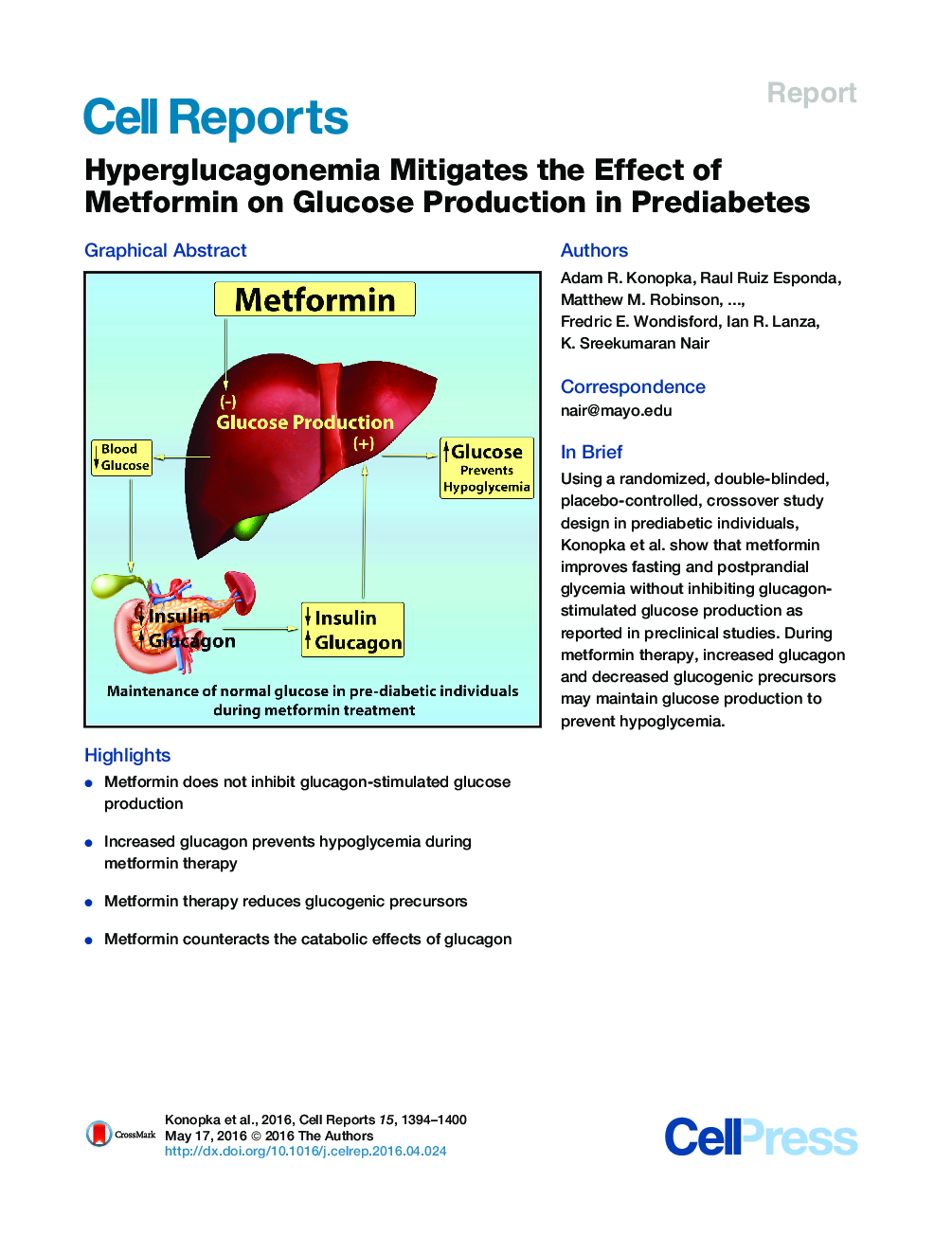| Article ID | Journal | Published Year | Pages | File Type |
|---|---|---|---|---|
| 2039005 | Cell Reports | 2016 | 7 Pages |
•Metformin does not inhibit glucagon-stimulated glucose production•Increased glucagon prevents hypoglycemia during metformin therapy•Metformin therapy reduces glucogenic precursors•Metformin counteracts the catabolic effects of glucagon
SummaryThe therapeutic mechanism of metformin action remains incompletely understood. Whether metformin inhibits glucagon-stimulated endogenous glucose production (EGP), as in preclinical studies, is unclear in humans. To test this hypothesis, we studied nine prediabetic individuals using a randomized, placebo-controlled, double-blinded, crossover study design. Metformin increased glucose tolerance, insulin sensitivity, and plasma glucagon. Metformin did not alter average basal EGP, although individual variability in EGP correlated with plasma glucagon. Metformin increased basal EGP in individuals with severe hyperglucagonemia (>150 pg/ml). Decreased fasting glucose after metformin treatment appears to increase glucagon to stimulate EGP and prevent further declines in glucose. Similarly, intravenous glucagon infusion elevated plasma glucagon (>150 pg/ml) and stimulated a greater increase in EGP during metformin therapy. Metformin also counteracted the protein-catabolic effect of glucagon. Collectively, these data indicate that metformin does not inhibit glucagon-stimulated EGP, but hyperglucagonemia may decrease the ability of the metformin to lower EGP in prediabetic individuals.
Graphical AbstractFigure optionsDownload full-size imageDownload as PowerPoint slide
